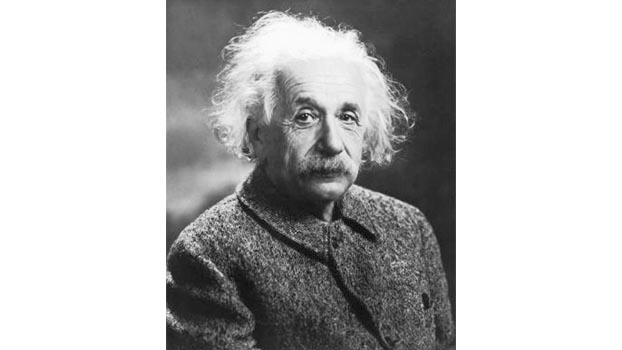Albert Einstein born

On March 14, 1879, Albert Einstein is born, the son of a Jewish electrical engineer in Ulm, Germany. Einstein’s theories of special and general relativity drastically altered man’s view of the universe, and his work in particle and energy theory helped make possible quantum mechanics and, ultimately, the atomic bomb.
After a childhood in Germany and Italy, Einstein studied physics and mathematics at the Federal Polytechnic Academy in Zurich, Switzerland. He became a Swiss citizen and in 1905 was awarded a PhD from the University of Zurich while working at the Swiss patent office in Bern. That year, which historians of Einstein’s career call the annus mirabilis–the “miracle year”–he published five theoretical papers that were to have a profound effect on the development of modern physics.
Einstein’s groundbreaking scientific work of 1905 addressed what he termed his special theory of relativity. In special relativity, time and space are not absolute, but relative to the motion of the observer. Thus, two observers traveling at great speeds in regard to each other would not necessarily observe simultaneous events in time at the same moment, nor necessarily agree in their measurements of space.
In Einstein’s theory, the speed of light, which is the limiting speed of any body having mass, is constant in all frames of reference. In the fifth paper that year, an exploration of the mathematics of special relativity, Einstein announced that mass and energy were equivalent and could be calculated with an equation, E=mc2.
Although the public was not quick to embrace his revolutionary science, Einstein was welcomed into the circle of Europe’s most eminent physicists and given professorships in Zurich, Prague and Berlin. In 1916, he published “The Foundation of the General Theory of Relativity,” which proposed that gravity, as well as motion, can affect the intervals of time and of space.
According to Einstein, gravitation is not a force, as Isaac Newton had argued, but a curved field in the space-time continuum, created by the presence of mass. An object of very large gravitational mass, such as the sun, would therefore appear to warp space and time around it, which could be demonstrated by observing starlight as it skirted the sun on its way to earth.
In 1919, astronomers studying a solar eclipse verified predictions Einstein made in the general theory of relativity, and he became an overnight celebrity. Later, other predictions of general relativity, such as a shift in the orbit of the planet Mercury and the probable existence of black holes, were confirmed by scientists.
During the next decade, Einstein made continued contributions to quantum theory and began work on a unified field theory, which he hoped would encompass quantum mechanics and his own relativity theory as a grand explanation of the workings of the universe. As a world-renowned public figure, he became increasingly political, taking up the cause of Zionism and speaking out against militarism and rearmament.
In his native Germany, this made him an unpopular figure, and after Nazi leader Adolf Hitler became chancellor of Germany in 1933 Einstein renounced his German citizenship and left the country. In 1950, he published his unified field theory, which was quietly criticized as a failure. A unified explanation of gravitation, subatomic phenomena, and electromagnetism remains elusive today. Albert Einstein, one of the most creative minds in human history, died in Princeton in 1955. History



